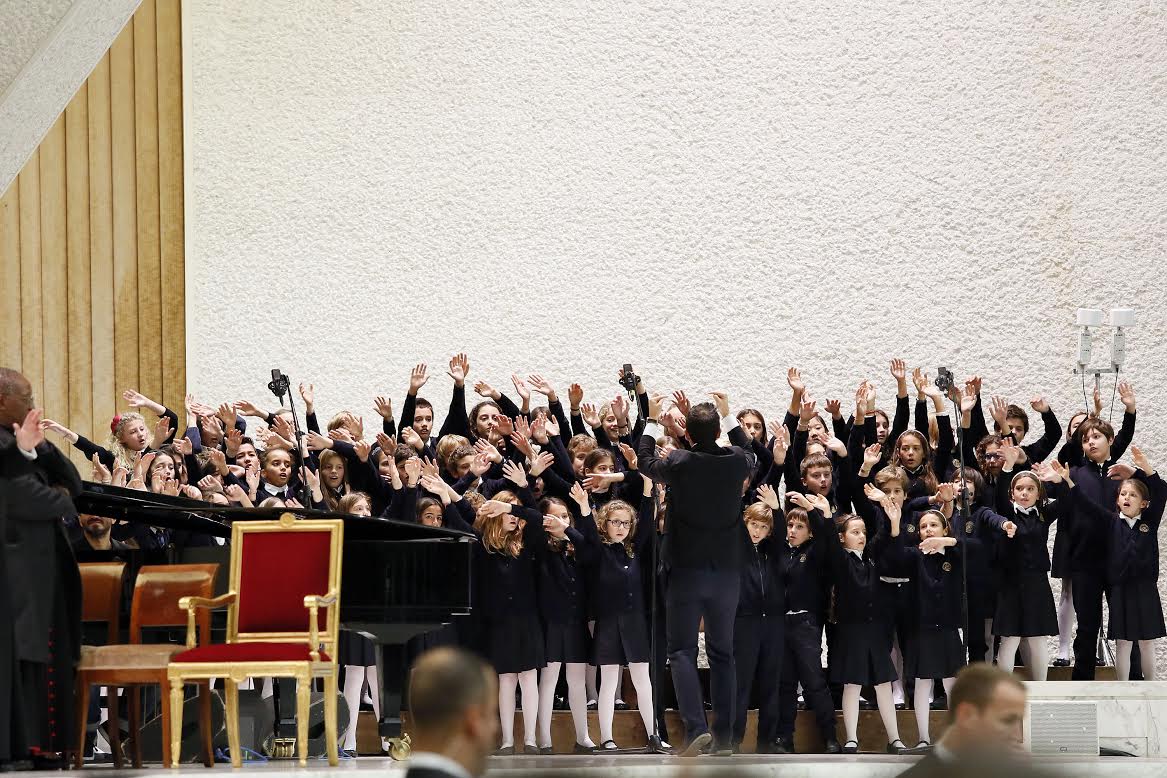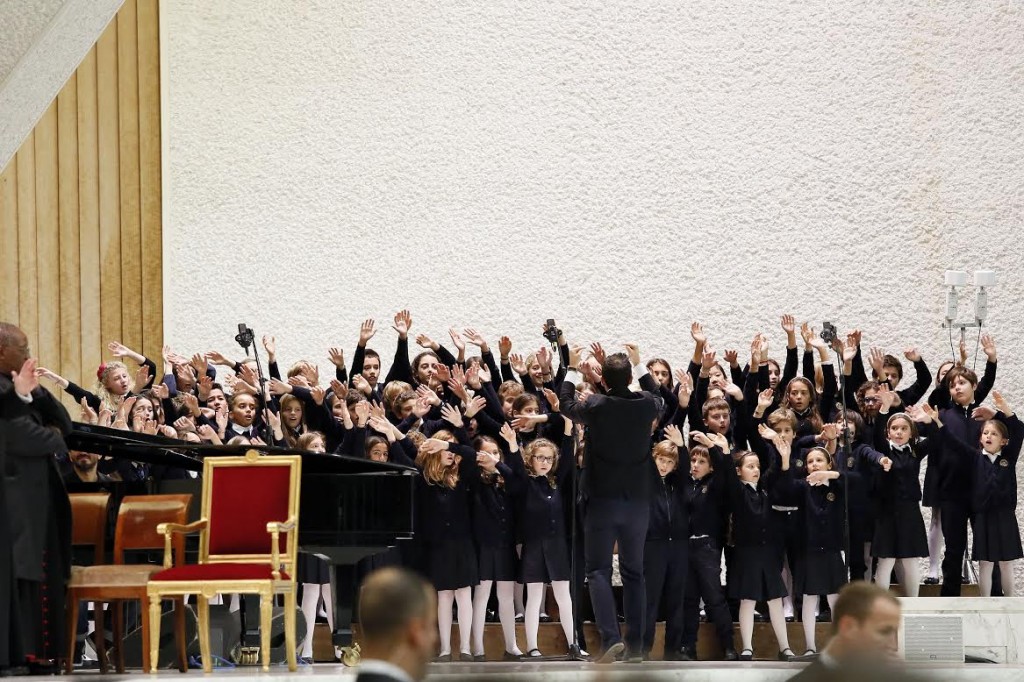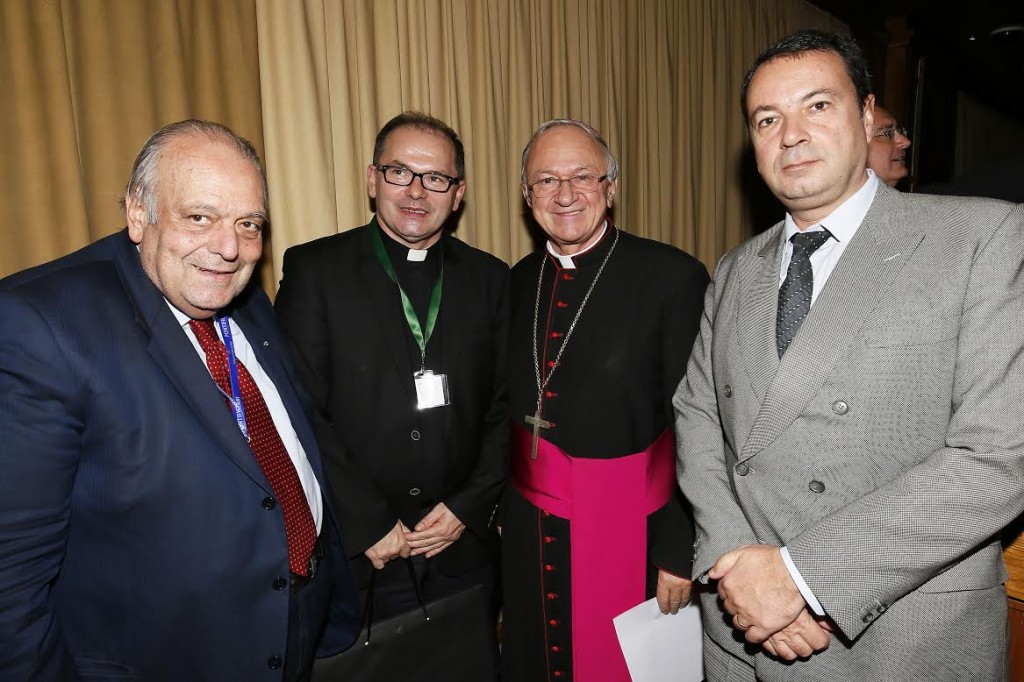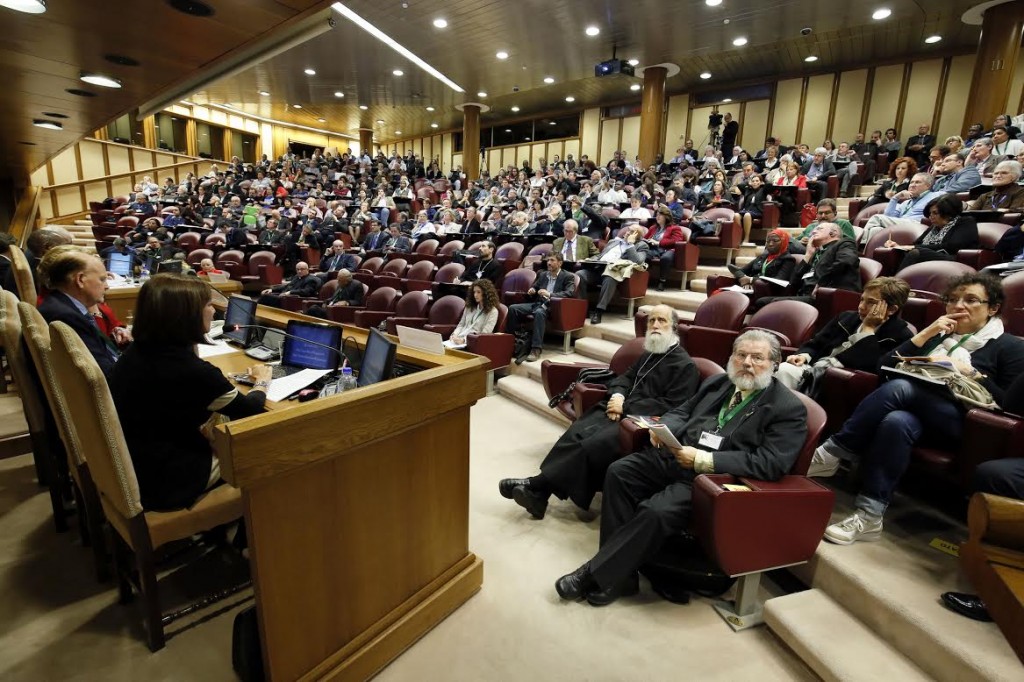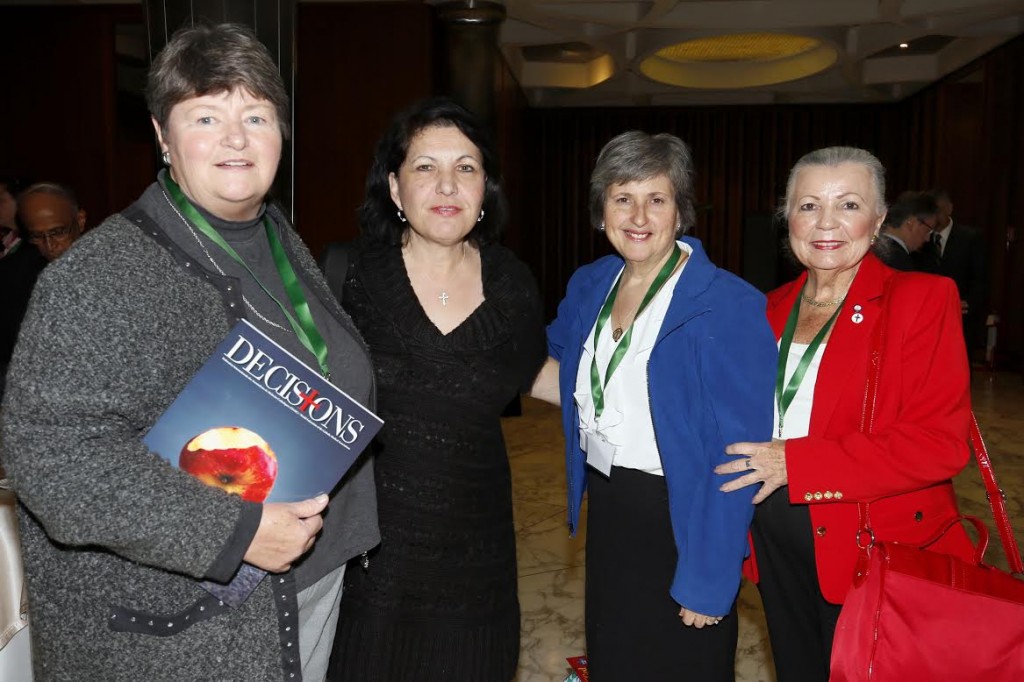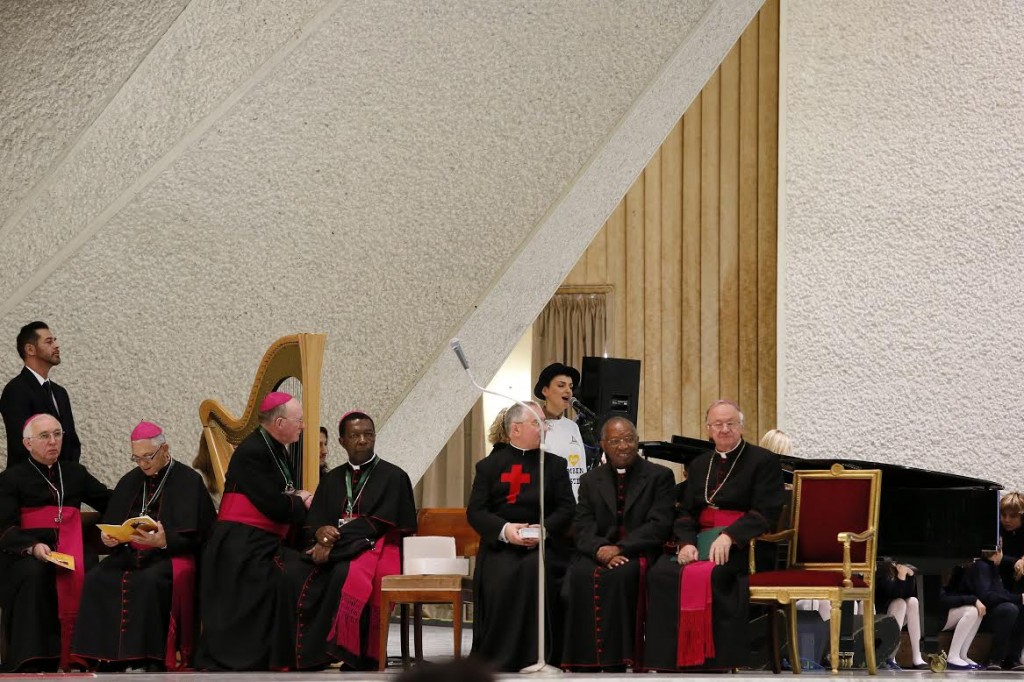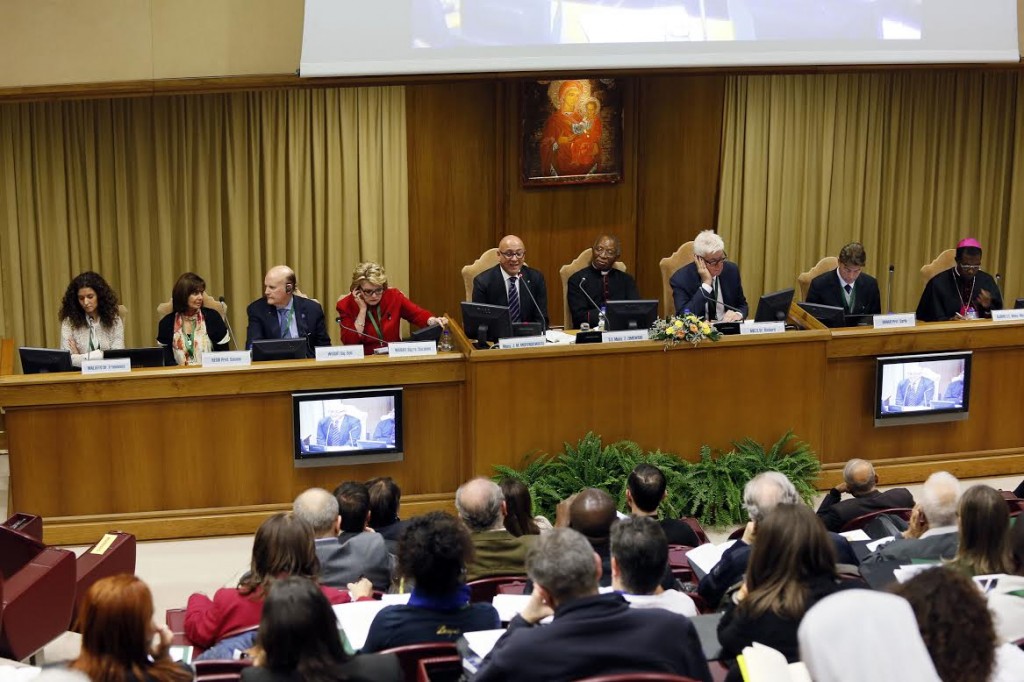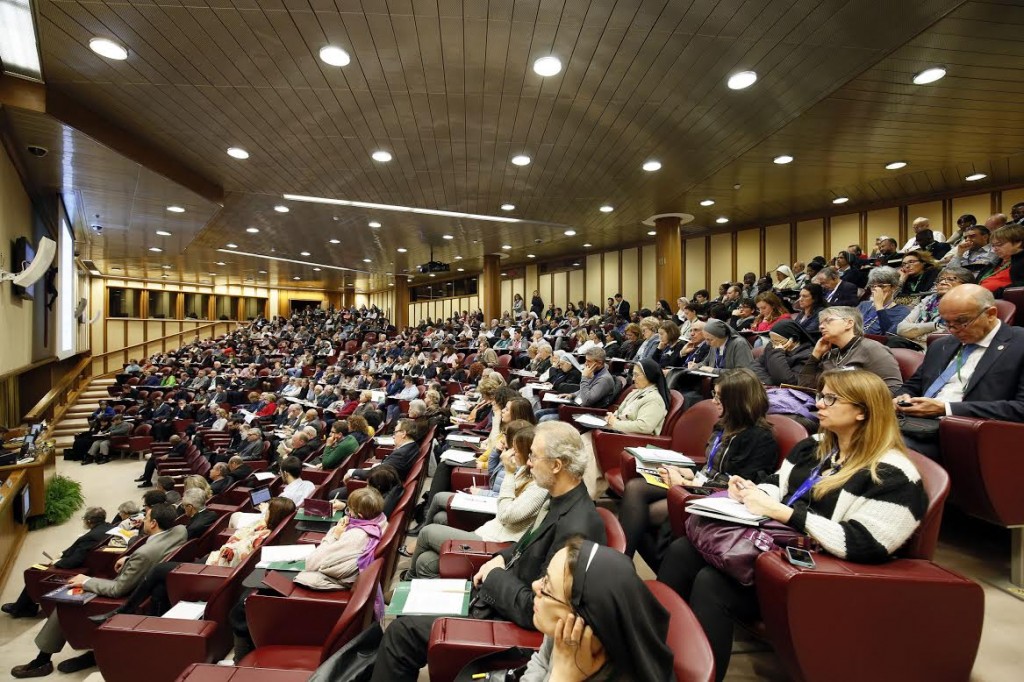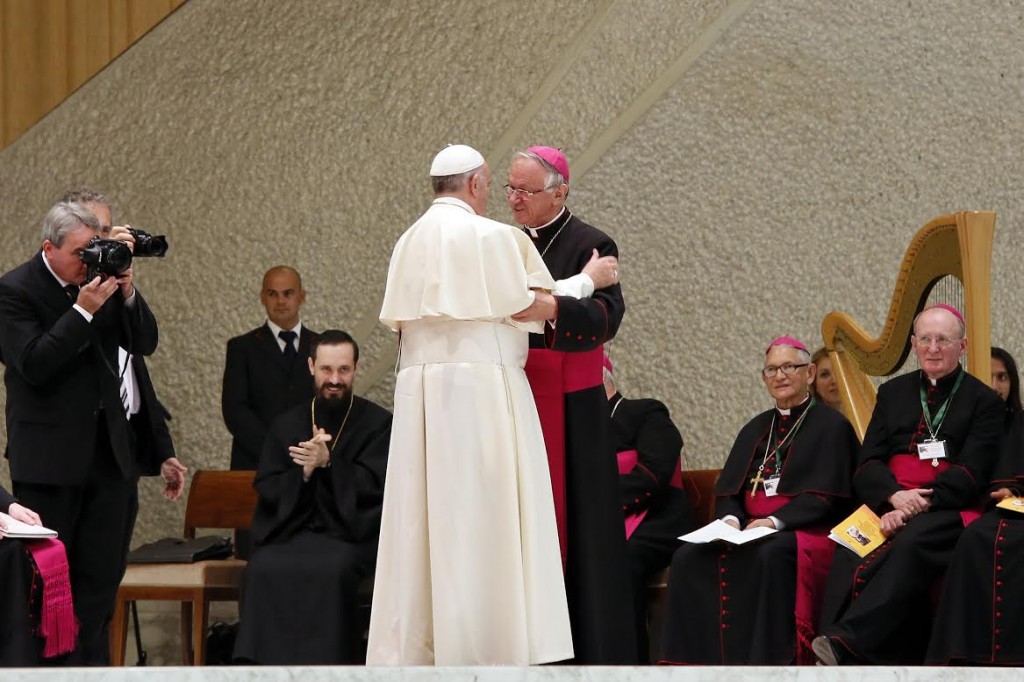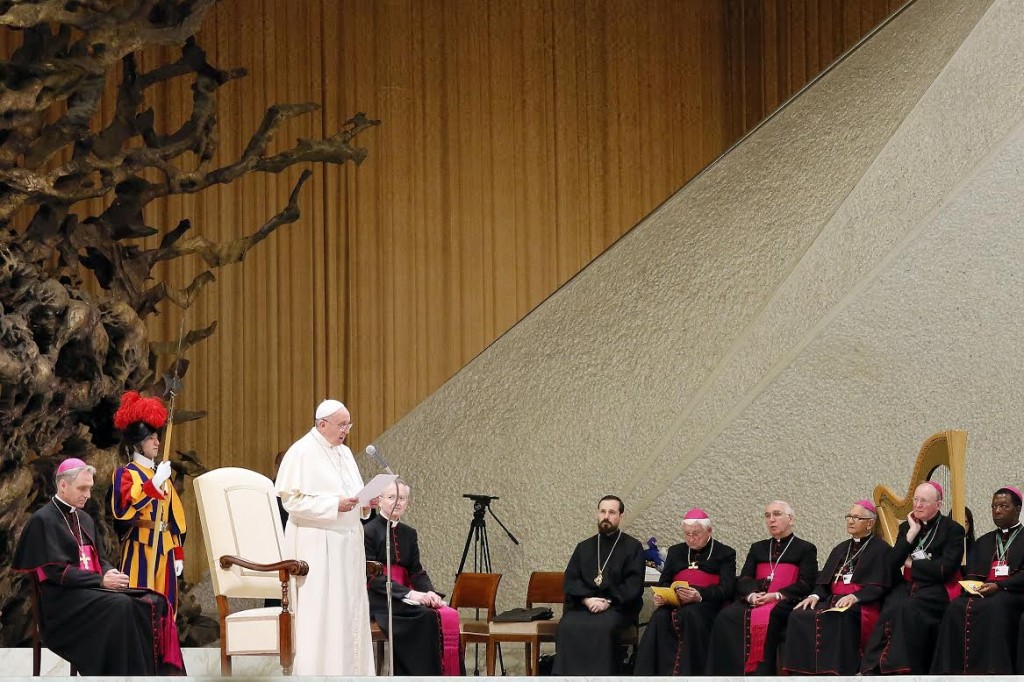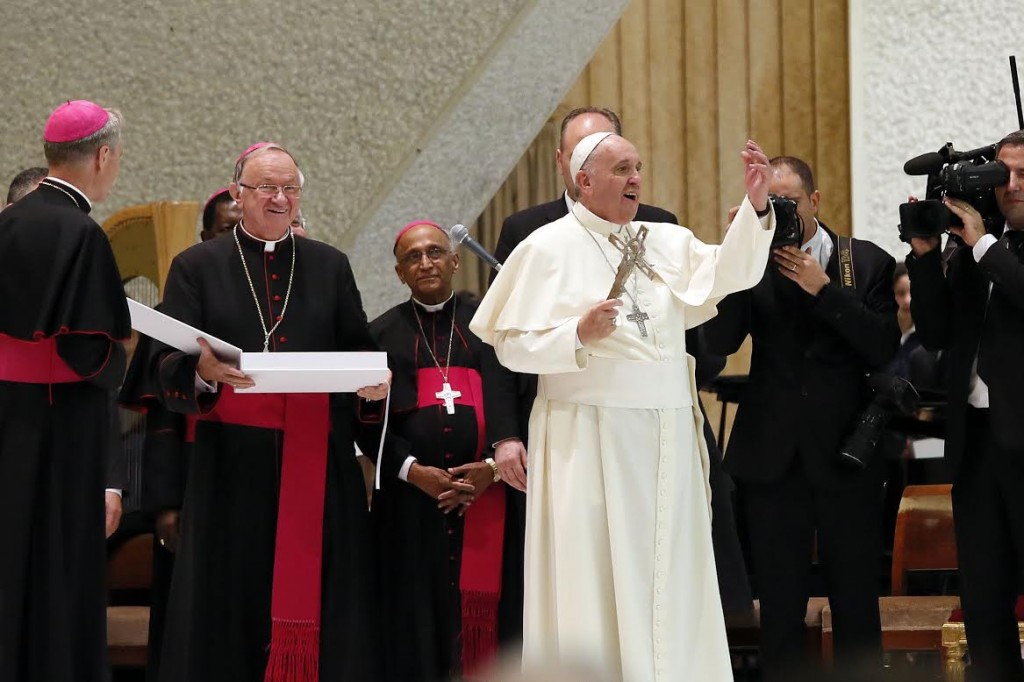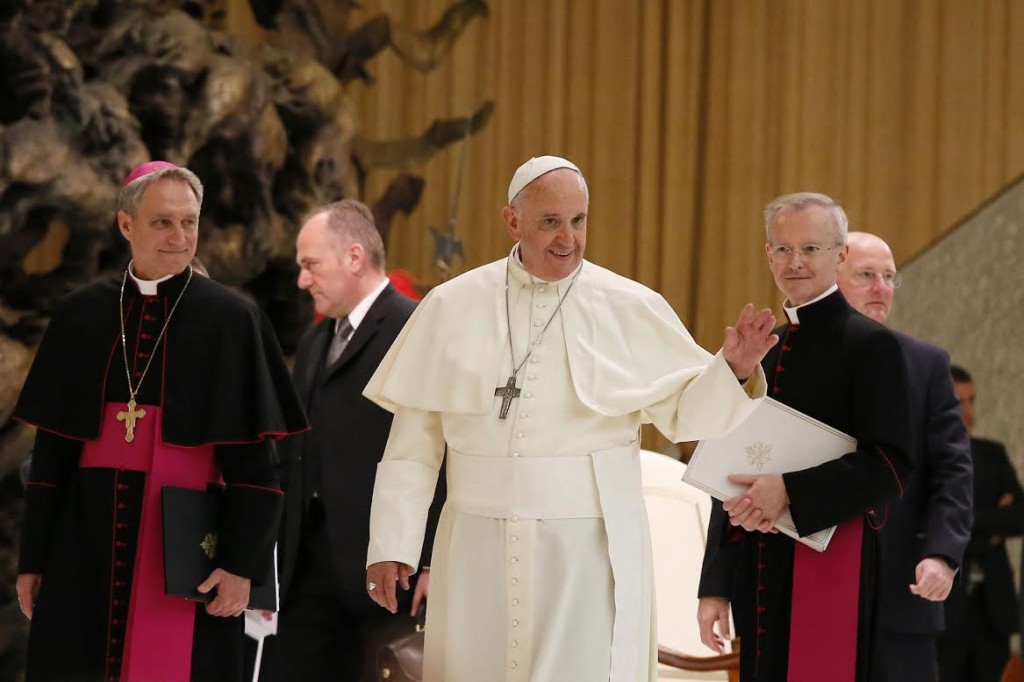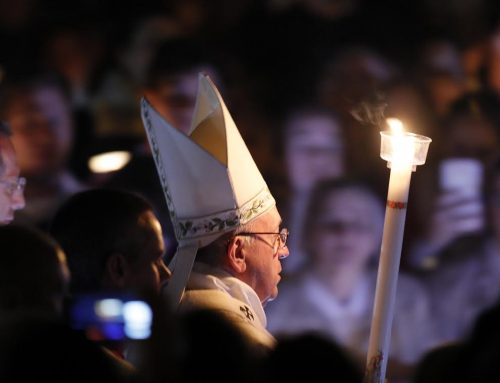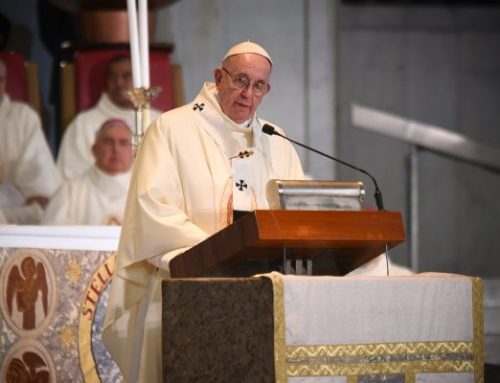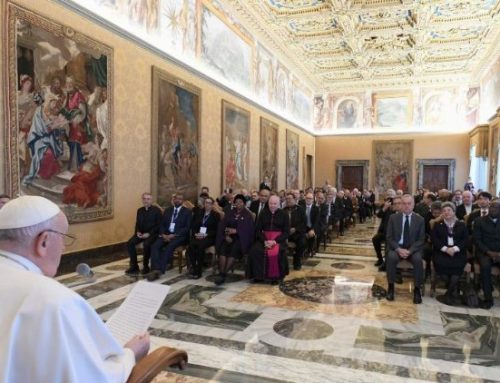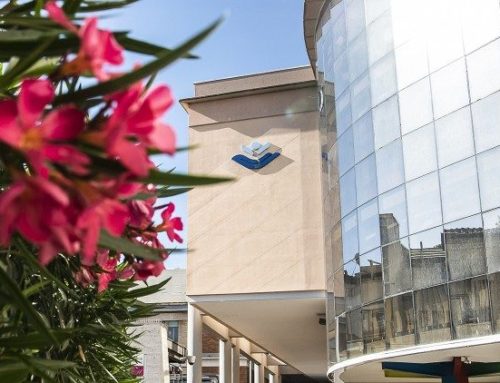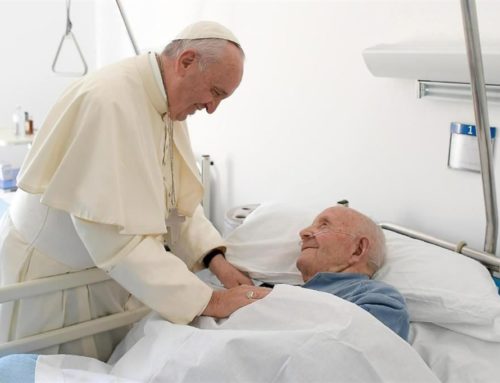DISCORSO DEL SANTO PADRE FRANCESCO
AI PARTECIPANTI ALLA XXIX CONFERENZA INTERNAZIONALE
PROMOSSA DAL PONTIFICIO CONSIGLIO PER GLI OPERATORI SANITARI
SUL TEMA «LA PERSONA CON DISTURBI DELLO SPETTRO AUTISTICO: ANIMARE LA SPERANZA»
Aula Paolo VI
Sabato, 22 novembre 2014
Cari fratelli e sorelle,
grazie per la vostra accoglienza!
Vi accolgo volentieri al termine della vostra XXIX Conferenza Internazionale, e vi ringrazio per aver voluto realizzare un’iniziativa così meritoria e attuale, dedicata ad un tema complesso qual è l’autismo.
Saluto con affetto tutti voi che siete venuti a prendere parte a questo incontro, incentrato sulla preghiera e sulla testimonianza, insieme alle persone affette da disturbi dello spettro autistico, le loro famiglie e le Associazioni di settore.
Tali disturbi costituiscono una delle fragilità che coinvolgono numerosi bambini e, di conseguenza, le loro famiglie. Essi rappresentano uno di quei campi che interpellano direttamente le responsabilità dei Governi e delle Istituzioni, senza certamente dimenticare quelle delle comunità cristiane.
È necessario l’impegno di tutti per promuovere l’accoglienza, l’incontro, la solidarietà, in una concreta opera di sostegno e di rinnovata promozione della speranza, contribuendo in tale modo a rompere l’isolamento e, in molti casi, anche lo stigma che gravano sulle persone affette da disturbi dello spettro autistico, come spesso anche sulle loro famiglie.
Si tratta di un accompagnamento non anonimo e impersonale, ma che intende anzitutto ascoltare le profonde esigenze che sgorgano dal profondo di una patologia, che molte volte stenta non solo ad essere diagnosticata, ma – soprattutto per le famiglie – ad essere accolta senza vergogna o ripiegamenti nella solitudine. E’ una croce.
Nell’assistenza alle persone affette dai disturbi dello spettro autistico è auspicabile quindi creare, sul territorio, una rete di sostegno e di servizi, completa ed accessibile, che coinvolga, oltre ai genitori, anche i nonni, gli amici, i terapeuti, gli educatori e gli operatori pastorali. Queste figure possono aiutare le famiglie a superare la sensazione, che a volte può sorgere, di inadeguatezza, di inefficacia e di frustrazione.
Ringrazio perciò per l’azione compiuta ogni giorno dalle famiglie, dai gruppi parrocchiali e dalle varie Associazioni che sono qui oggi rappresentate e di cui abbiamo ascoltato significative e commoventi testimonianze. A tutti loro va la mia riconoscenza personale e quella di tutta la Chiesa.
Incoraggio, inoltre, l’impegnativo lavoro degli studiosi e dei ricercatori, affinché si scoprano al più presto terapie e strumenti di sostegno e di aiuto per curare e, soprattutto, per prevenire l’insorgere di questi disturbi. Tutto ciò nella dovuta attenzione ai diritti degli ammalati, ai loro bisogni e alle loro potenzialità, salvaguardando sempre la dignità di cui è rivestita ogni persona.
Cari fratelli e sorelle, vi affido tutti alla protezione della Madonna, e vi ringrazio di cuore per le vostre preghiere. Adesso, tutti insieme, preghiamo la Beata Vergine Maria per tutti gli operatori sanitari, per gli ammalati, e poi riceviamo la benedizione. Ave Maria…
[Benedizione]
Anche adesso, tutti insieme, faremo una preghiera per l’anima del Cardinale Angelini, che è stato il fondatore di questo Consiglio per la salute, colui che ha iniziato quest’opera di servizio della Chiesa e che il Signore ha chiamato a sé questa notte.
Padre Nostro …
Ave o Maria …
Gloria Patri …
Requiem aeternam …
……………………………
…………………………………
Vatican Radio) Pope Francis says we need to “break down the isolation and stigma that burden” people living with autism spectrum disorders. The Pope was speaking to participants at a three-day conference sponsored by the Pontifical Council for Pastoral Health Care titled The Person with Autism Spectrum Disorders: Animating Hope.
Emer McCarthy’s report:
650 experts from 57 countries were joined in the Paul VI hall Saturday by hundreds of parents and children affected by autism. Warmly thanking them for their ‘moving and meaningful testimonies’ on what it means to live with the condition, Pope Francis spoke of the fragility of children and families suffering from autism spectrum disorders, describing the stigma and isolation they feel as a Cross.
To meet their needs and break through their loneliness, the Pope spoke of creating a network of support and services on the ground that are comprehensive and accessible. This is the responsibility of governments and intuitions he said but also of Christian communities, parishes and friends. This continued the Pope would help families overcome the feelings, that can sometimes arise, of inadequacy, uselessness and frustration when faced with the daily realities of autism.
Pope Francis concluded with words of encouragement for academics and researchers in the field that they may discover therapies and support tools, to help and heal and, above all, prevent the onset of these conditions as soon as possible. While always safeguarding the inalienable dignity of every person.
Below a Vatican Radio translation of the Holy Father’s address:
Dear Brothers and Sisters,
Thank you for your welcome!
I am happy to welcome you at the end of your XXIX International Conference organized by the Pontifical Council for Pastoral Health Care, which I thank for wanting to realize such a commendable and relevant initiative, dedicated to the complex issue of autism spectrum disorders.
I warmly greet all of you who have come to take part in this meeting, which focused on prayer and testimony, together with people who are affected by autism spectrum disorders, their families and specialized associations.
These conditions constitute a fragility that affects numerous children and, consequently, their families. They represent an area that appeal to the direct responsibility of governments and institutions, without of course forgetting the responsibility of Christian communities.
Everyone should be committed to promoting acceptance, encounter and solidarity through concrete support and by encouraging renewed hope. In this way we can contribute to breaking down the isolation and, in many cases, the stigma burdening people with autism spectrum disorders, and just as often their families.
This must not be an anonymous or impersonal accompaniment, but one of listening to the profound needs that arise from the depths of a pathology which, all too often, struggles to be properly diagnosed and accepted without shame or withdrawing into solitude, especially for families. It is a Cross.
Assistance to people affected by autism spectrum disorders would benefit greatly from the creation of a network of support and services on the ground that are comprehensive and accessible. These should involve, in addition to parents, grandparents, friends, therapists, educators and pastoral workers. These figures can help families overcome the feelings, that can sometimes arise, of inadequacy, uselessness and frustration.
For this very reason, I thank the families, parish groups and various associations present here today and from whom we heard these moving and meaningful testimonies, for the work they carry out every day. I extend to all of them my personal gratitude and that of the whole Church.
Moreover, I want to encourage the hard work of academics and researchers, so that they may discover therapies and support tools, to help and heal and, above all, prevent the onset of these conditions as soon as possible. All of this while paying due attention to the rights of the patients, their needs and their potential, always safeguarding the dignity of every person.
Dear brothers and sisters, I entrust you all to the protection of the Virgin Mary, and I thank you for your prayers. Now, all together, let us pray to the Blessed Virgin Mary for all health care workers, for the sick, and then receive the blessing. Hail Mary …
(Emer McCarthy)

